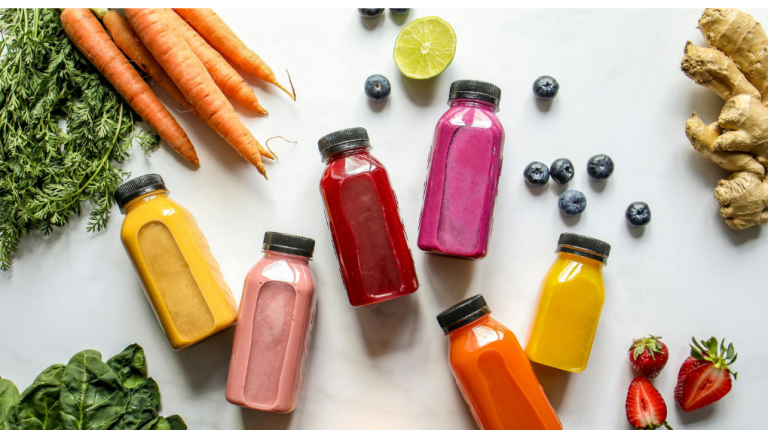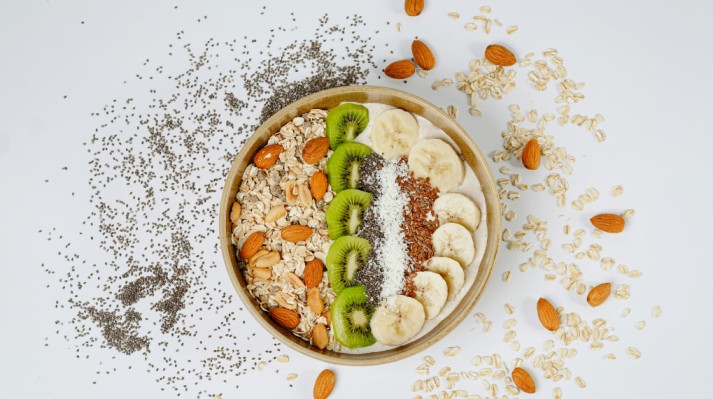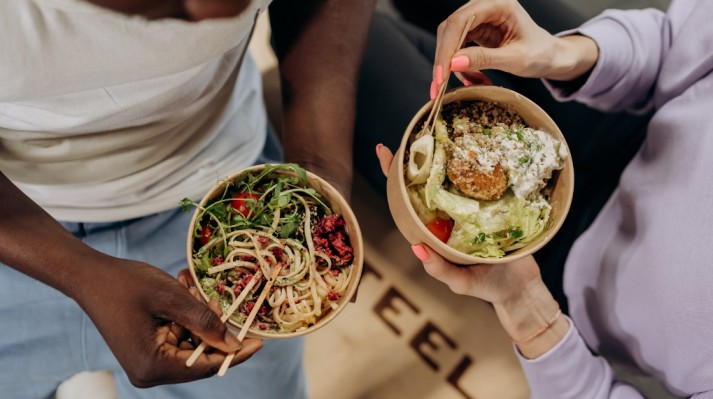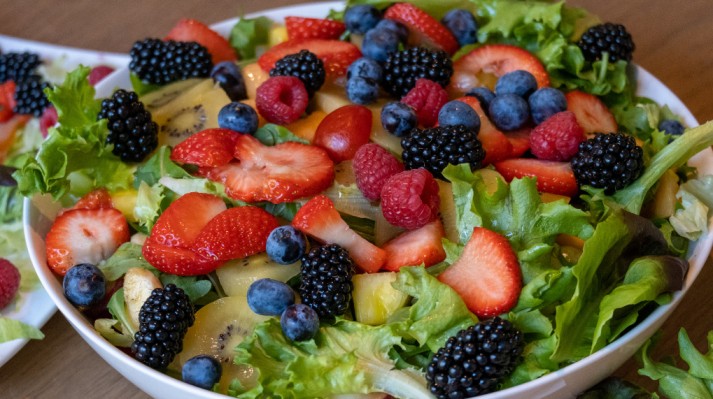Have you ever experienced a swollen stomach accompanied by gas buildup, stomach cramps, and burping? These are all symptoms of bloating. Bloating is a common digestive issue that arises when excess gas builds up in the digestive tract or from foods difficult for the body to digest. Many daily foods we consume often contain ingredients that contribute to bloating. Some foods can cause occasional bloating; however, frequent bloating can be a sign of underlying medical conditions! Throughout this blog, we shall find the common causes of bloating and healthier alternatives to fight the stomach issue.
Bloating: Reasons, Prevention, and Management
Before moving on to foods that cause bloating, we should have a detailed look at the phenomenon of bloating, its connection to other diseases, and ways to avoid bloating:
What Causes Bloating?
Bloating arises as the body struggles to digest certain kinds of foods, causing issues such as buildup of gas, water retention, and even slowing down of the digestion process and system. The most common foods that contribute to bloating are high-fiber foods and sodas or carbonated drinks. Food allergies and sensitivities from lactose and gluten can also cause bloating. The most common factor leading to bloating is the gas buildup, which is caused by bacteria that are meant to break down carbohydrates. Conditions that cause large amounts of air to be trapped in the digestive system—eating foods fast, eating large amounts of food in a single sitting, drinking liquids through straws, etc.—have been linked to bloating.
Difference Between Bloating and Other Digestive Issues
Bloating is often seen as a symptom of other digestive conditions, such as indigestion or stomach distension.
Indigestion: This is caused by overeating or the consumption of spicy foods and fatty foods, which causes irritation in the digestive tract and causes acid reflux.
Stomach Distension: A condition that causes the abdomen to swell up due to gas or fluid accumulation in the stomach caused by food intolerances or digestive disorders.
Persistent bloating can also be an indication of serious health conditions such as Irritable Bowel Syndrome (IBS), Small Intestinal Bacterial Overgrowth (SIBO), or other food allergies.
Foods That Cause Bloating
Some foods, even healthy foods, can cause bloating due to the specific compounds present in them. While some may experience temporary bloating, others can experience more consistent bloating that lasts a few days. Knowing foods that cause bloating can help you avoid them and find better alternatives. Find below the list of common foods that are known to cause bloating:
Cruciferous Vegetables: Leafy vegetables such as broccoli, cauliflower, cabbage, and Brussels sprouts are known for their large amounts of fiber and sulfur. While undergoing digestion, these foods produce huge amounts of gas—leading to bloating. Steaming or roasting these foods can help hasten the process of digestion, lowering the chances of bloating.
Legumes and Beans: Lentils, chickpeas, and beans contain a specific complex sugar—oligosaccharides—which are difficult to digest. These components can ferment in the gut, causing a huge buildup of gas—leading to bloating. Cooking these foods with spices such as ginger and cumin can help in better digestion.
Dairy Products: Lactose intolerance is a common condition that arises due to the human body’s capacity to digest dairy products. As the body tries to digest dairy foods such as milk, yogurt, and cheese, it causes the bacteria to build up and cause bloating. Using lactose-free alternatives such as almond milk, coconut yogurt, and lactose-free cheese can help avoid these circumstances.
Carbonated Drinks: Sodas, sparkling water, beer, and other carbonated drinks that contain carbon dioxide gas get trapped in the digestive system and lead to bloating. The best alternative to this is by consuming non-carbonated beverages.
Artificial Sweeteners: Most sugar-free products contain artificial sweeteners – sorbitol, xylitol, aspartame, and more. The digestive system often finds it difficult to digest these synthetic components, which leads to bloating. Choosing natural alternatives – honey, and maple syrup – can be healthier.
High-Sodium Processed Foods: Most processed foods contain synthetic ingredients and high levels of sodium – which causes water retention in the digestive tract, causing bloating. Switching to healthier and home-cooked meals can prevent excessive intake of sodium.
Friend and Fatty Foods: Greasy foods that are high in fat negatively impact the digestive system, making them harder to digest. This causes bloating and discomfort. Choosing healthier options, such as olive oil, can help in better digestion.
Whole Grains & Fiber-Rich Foods: Wheat, bran, and quinoa are fiber-rich foods that cause bloating when consumed in excess. Even though fiber-rich foods are good for digestion, too much can lead to bloating and digestive discomfort.
Onions and Garlic: Onions and garlic contain the component – fructans – a type of carbohydrate that causes a buildup of gas, leading to bloating. They specifically affect individuals with sensitive stomachs. Healthier alternatives for this include garlic-infused oils and chives.
Apples, Pears, and other high-FODMAP fruits: Fruits that are high in FODMAP content can trigger bloating in certain individuals due to sensitivity issues. Finding low-FODMAP fruits such as bananas and citrus fruits can help.
Foods That Reduce Bloating
Now that we have looked at foods that cause bloating as well as their healthier alternatives, let us take a closer look at foods that can help reduce bloating:
Probiotic-Rich Foods: Yogurt, kefir, kimchi, and sauerkraut contain healthy probiotics. Probiotics can help balance the gut bacteria and improve gut health and therefore can help in reducing bloating.
Hydrating Foods and Vegetables: By staying hydrated, one can flush out the excess sodium in the body as well as decrease water retention. Foods rich in water – cucumbers, watermelon, and celery – can help in decreasing bloating.
Herbal Tea and Digestive Aids: Herbal teas made from ginger, peppermint, and funnel are recognized for their anti-bloating properties. They positively affect the digestive system to decrease gas buildup and promote better gut health.
Tips to Prevent and Manage Bloating
Adapting to better foods can help prevent bloating, but certain other things can be done to avoid the phenomenon. Let us look at some tips that can prevent and manage bloating:
Eating Habits: Choosing better eating habits can help in fighting bloating. Factors such as chewing slowly, eating smaller portions, and frequent meals allow your stomach to process foods more effectively.
Hydration and Movement: Keeping yourself hydrated and maintaining regular physical exercises can help boost your digestive system by encouraging gas movement and reducing bloating.
Food Sensitivities: Persistent bloating is a sign of food sensitivities. Undergoing an elimination diet under the supervision of a professional can help in removing foods that trigger bloating in you.
Find Relief from Bloating with Qua Nutrition
Bloating can be an uncomfortable experience, as it can often be triggered by the foods we love. While some foods contribute to excess gas buildup, others can aid digestion and reduce bloating symptoms. By understanding which foods trigger bloating and incorporating digestion-friendly alternatives, you can support your gut health and feel more comfortable throughout the day.
At Qua Nutrition, we specialize in personalized nutrition plans to help you identify and manage bloating triggers effectively. Our expert dietitians and nutritionists provide science-backed strategies to optimize your diet, promote better digestion, and reduce discomfort. Whether you’re looking to improve your gut health, alleviate bloating, or make healthier food choices, we’re here to guide you every step of the way. Contact us to consult with our expert nutritionists and lead a bloating-free life!









